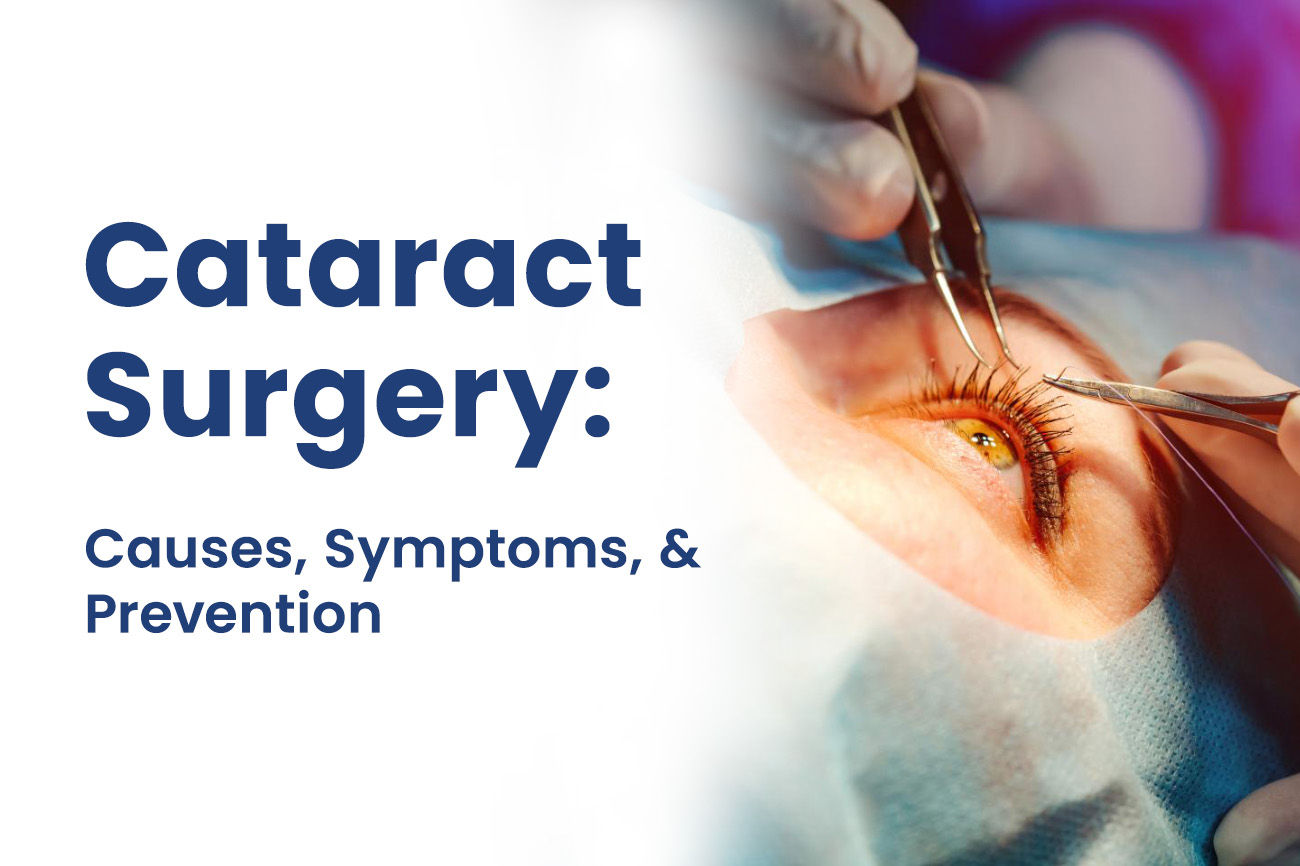
Cataract Surgery: Causes, Symptoms, and Prevention
Cataracts impact millions annually and stand as a primary cause of global blindness. Simply put, a cataract is clouding the eye's typically clear lens. For individuals grappling with cataracts, their sight mimics that of someone straining to see through a veil of mist or frost.
Cataract sufferers may struggle reading or driving in dim light, impacting their daily routines. Treatment is crucial. We aim to guide those seeking insight into this condition, covering causes, symptoms, and cataract-removal surgery.
-
What Causes Cataracts?
Cataracts can develop due to various factors, with age being the primary cause. As we age, proteins in the eye lens can clump together, causing cloudiness. Other factors that can contribute to this condition include:
-
Genetic predisposition: A family history of cataracts can elevate your susceptibility to the condition.
-
Certain medical conditions: Diabetes can result in the development of cataracts.
-
Lifestyle choices: Smoking and excessive alcohol consumption have been linked to the onset of cataracts.
-
Environmental factors: Prolonged exposure to UV rays without adequate eye protection can lead to the development of cataracts.
-
A history of eye injury or surgery: It can accelerate the progression of cataracts.
-
-
Symptoms of Cataracts
Detecting cataract symptoms promptly is crucial for timely treatment. Typical signs to watch for are:
-
Blurred vision: It can give the impression of peering through a misted window
-
Light sensitivity: Intense illumination could lead to discomfort or the perception of halos.
-
Color fading or yellowing: Colors lose vibrancy and decrease contrast.
-
Difficulty with night vision: Navigating low-light conditions can pose a challenge.
-
Regular adjustments to prescriptions: Glasses or contact lenses might require more frequent updates.
-
-
When to Consider Cataract Surgery?
Cataract surgery is typically advised when the condition significantly hampers vision, impacting daily tasks such as reading or driving. This procedure stands as one of the prevalent and efficacious treatments conducted globally.
The surgical process includes extracting the cataract-affected lens and substituting it with a transparent artificial lens known as an intraocular lens (IOL). Typically performed as outpatient surgery, it necessitates minimal sedation.
The procedure boasts high success rates and substantially enhances patients' vision. Cataract surgery offers advantages such as clear visual acuity, enhanced quality of life, independence, and safety.
-
Preparing for Cataract Surgery
Before surgery, a comprehensive set of tests will be conducted to determine the most appropriate lens implant (IOL) for your needs. Your ophthalmologist will explain the procedure, potential risks, and essential post-operative instructions to ensure you are fully informed.
-
Recovery from Cataract Surgery
Optimal recovery typically lasts a few weeks, emphasizing the importance of diligently following your eye surgeon's advice. This may involve using prescribed eye drops to stave off infection and inflammation, donning protective eyewear, and refraining from rigorous activities that could jeopardize your healing eye.
-
Cataract Prevention
Although there's no foolproof method to prevent cataracts, you can reduce your risk by taking specific actions, such as:
-
Wearing sunglasses: Protecting your eyes from harmful UV rays is crucial.
-
Maintaining a balanced diet: The nutrients and antioxidants in fruits and vegetables are crucial in maintaining optimal eye health.
-
Addressing other health issues: Effectively managing conditions such as diabetes can be beneficial.
-
Avoiding smoking: It diminishes the risk of cataracts and numerous other health concerns.
-
Comprehending cataract surgery is vital for individuals dealing with this condition. Recognizing the causes, identifying symptoms early, and considering surgical solutions are proactive steps to maintain clear vision and well-being. While eye surgery may appear intimidating, advancements in cataract treatment improve patient experience and results.
Regular eye exams are crucial for catching cataracts early. If you notice changes in your vision, don't hesitate to consult your eye care specialist. With proper care and prompt action, the effects of cataracts can be minimized, offering you a clearer perspective on the world.
